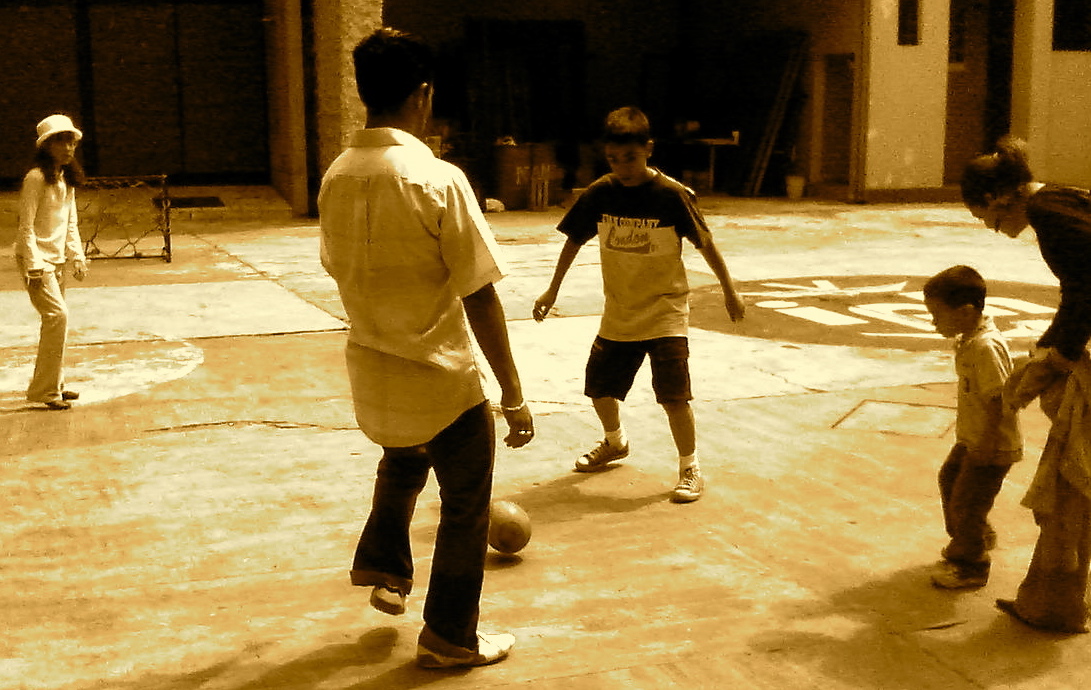FIFA Media Release
There is no better stage than the FIFA U-17 World Cup to launch a programme designed to enhance the health and well-being of young people through football in the host country. The passion for the game in Mexico can be felt in every corner of the country and exactly this unique power of football has been combined in a comprehensive health programme, “11 for Health”, to use football as a tool in prevention and education. FIFA, the Ministry of Health, the National Commission of the Social Health Protection System, FIFA and the Mexican Football Association (FMF) joined forces at the Ministry of Health in Mexico City on 1 July 2011 to announce the roll-out of the Football for Health initiative. In the first phase of the programme, schools in seven cities in Mexico will participate, namely in Mexico City, Guadalajara, Monterrey, Puebla, Colima, Culiacán and Oaxaca.

“Physical activity, such as football, is indispensable for building a healthy population. The ‘11 for Health’ programme fits perfectly in our national health promotion activities. It offers an effective, feasible and low-cost tool to improve the health of the young people who are our future,” explained Mexico’s Health Minister, Dr José Ángel Córdova Villalobos, at the launch event in the presence of Prof. Jiri Dvorak, FIFA Chief Medical Officer and chairman of the FIFA Medical Assessment and Research Centre (F-MARC), Justino Compeán, CONCACAF Vice-President and FMF President, Decio De Maria, FMF General Secretary, and Salomón Chertorivski Woldenberg, National Commissioner of the Social Health Protection System.
“With the creation of ‘11 for Health’, FIFA has embarked on yet another path to use football as a direct tool to improve the life of young people. The ‘11 for Health’ emphasises the power of football far beyond the boundaries of the football pitch. This can only be achieved with the support of governments. With the cooperation of the Ministry and the National Commission of Social Health Protection System here in Mexico, we will set the ball rolling for the young Mexican generation,” explained Prof. Dvorak.
Following successful pilot evaluations of the ’11 for Health’ programme in South Africa (2009), Zimbabwe (2010) and Mauritius (2010), Mexico will be the first country outside Africa to implement this health programme. Colombia and Brazil are expected to follow. The pilot study showed that the simple health messages, when combined with different elements of football play, such as defending, heading, shooting and attacking, were indeed able to considerably improve knowledge and change attitudes towards health among the boys and girls. Playing also helped to reduce obesity.
The “11 for Health” programme complements the Mexican government’s “5 Pasos por tu Salud” (“Five Steps for Your Health”) and “Mídete, cuida tu peso” (“Measure Yourself, Watch Your Weight”) campaigns in order to harness the full potential of using football to promote health. Playing football, ambitiously or just for fun, has been shown in scientific studies to be a particularly healthy sport and reduce the risk factors for many diseases indicated by the World Health Organization (WHO). Based on these findings, F-MARC decided to combine the direct health effects of the game with its unique power in education and prevention to create this comprehensive health programme, using top players such as Mexico’s Carlos Vela and Javier “Chicharito” Hernández, Argentina’s Lionel Messi and Portugal’s Cristiano Ronaldo, to name just a few, to deliver health education messages to young people.
“The most important project at present and in the future goes far beyond the game itself: the focus of ‘Football for Health’ is not on players’ health but on the health of communities and society as a whole. Football’s popularity means it has the potential to play a unique role in disease awareness and prevention. For the Mexican Football Association, it is imperative that we promote health and put together this programme with FIFA and the Ministry of Health,” explained Justino Compeán.
Click here for for more information.